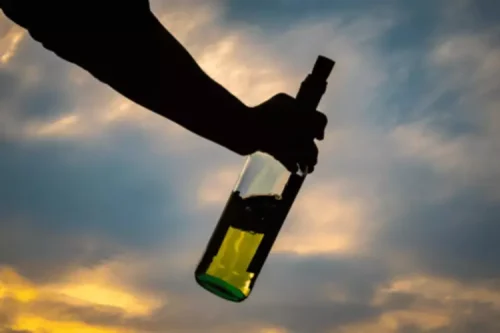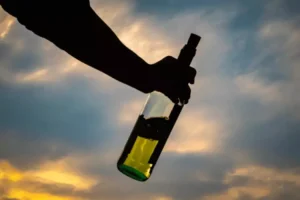
This pervasive stigma is a big reason why seeking help for substance abuse, or even admitting you struggle with substance abuse, is so hard. To admit powerlessness over alcohol (or drugs) means accepting the fact that you’ve lost control over your substance use. You accept that your life, either internally, externally or both, has been impacted by maintaining the use of a substance and this addiction has negatively influenced your thoughts and actions. Worldwide, alcoholics, addicts and treatment professionals embraced the Twelve Steps, and more than 35 million copies of AA’s Big Book have been distributed in over 70 languages. Families can also find support in 12 step based self-help in groups such as Al-anon and Nar-Anon. When we admit that we are powerless over alcohol or drugs, we admit that we are living with a disease that alters the chemical makeup of the brain.
“We admitted we were powerless over alcohol, that our lives had become unmanageable.” – Step One of the 12 Steps

Many 12-Step programs are well-known groups that use the concept of powerlessness to benefit recovery. The Alcoholics Anonymous (AA) Big Book says “powerless over alcohol” as its first principle. AA members believe they cannot control their drinking without the help of a higher power. Known as the Big Book of Alcoholics Anonymous, the publication changed the conversation about alcoholism and catapulted the Twelve Step model of recovery into the public’s eye.

Dispelling Misconceptions About the 1st Step

This could mean God, a general belief system or the recovery community itself. Regardless of what addicts identify as their own personal higher power, it’s an expression that means they’re accountable to someone or something that’s bigger, more powerful and more influential than themselves. In this context, it means that someone feels like they don’t have any control over their life.
- Continued to take personal inventory and when we were wrong promptly admitted it.
- As a licensed clinician, Cheryl stands ready to diagnose and treat a wide spectrum of mental, behavioral, and personality disorders that sometimes present alongside a substance use disorder.
- Powerlessness doesn’t mean we are incapable in every area of life; it means we cannot control our alcohol use disorder or addictive behaviors on our own.
- We walk this journey one step at a time, with our Higher Power’s help and with the support of others in the program.
- Damaged relationships with family and friends, job loss due to unreliability or poor performance, and disruptive sleep patterns that impact overall health are just a few of the ways alcoholism can wreak havoc.
Questions to Ask Yourself in 1st Step AA
You’re not alone—almost everyone has a hard time with Step 1 when they first get sober. The phrasing can be confusing or dated, and when people first encounter Step 1, they’re likely to pause at the idea of being powerless while others scratch their heads at “life has become unmanageable.” When individuals struggling with addiction admit they are powerless, they also start to recognize the areas in their lives where surrender can bring peace. This mindset allows us to navigate challenges with clarity and purpose.

It frees you up to focus your time and energy on things that are within your control. Perhaps you are familiar with the words of the Serenity Prayer, which is commonly recited at AA meetings. It includes the line, “Grant me the ability to accept what I cannot change; courage for the things I can; and wisdom to know the difference.” Being powerless over addiction does not mean you are powerless in general. The AA first step, admitting powerlessness and acknowledging the unmanageability your addiction brings, is a crucial leap toward lasting recovery. It’s a moment of profound self-realization and humility, opening the door to hope, healing and transformation.
The philosophy behind this thinking is powerless over alcohol that your judgment was flawed enough to get yourself into this situation, it’s too flawed to get yourself out of it. Read on to learn more about the concept of powerlessness, what it really means, and why it’s so critical in the recovery journey. The original version of the Twelve Steps and The Big Book makes numerous references to God, and this is largely because the steps were based on the six principles of The Oxford Group, a religious movement. The original references to God were quickly challenged in the early days of AA, and Bill W.

“The first step towards change is awareness. The second step is acceptance.”
- For someone in recovery from alcohol use disorder, this can be very risky and potentially lead to a relapse.
- Shannon is a certified A.D.T. who has worked in different capacities at several rehabilitation centers in the state of Maryland.
- The reluctance is compounded by the fact that alcohol is a socially accepted substance, making it difficult for many to recognize the severity of their addiction.
- Sharing removes the shame that keeps us isolated and opens the door to healing.
- It is not a substitute for clinical treatment or individualized therapeutic services.
- Admitting that you are powerlessness over alcohol means that you cannot and never will be able to drink alcohol in a safe manner again.
The impact of drugs and alcohol on your body over time renders your natural brain functions and mechanisms powerless. To acknowledge the way these substances have impacted your life is to admit that alcoholism symptoms alcohol and drugs have made your life unmanageable and you can’t fix it on your own. Whatever the reason, admitting powerlessness is to say that practicing self-control does not undo the effects of drugs or alcohol on the brain.


